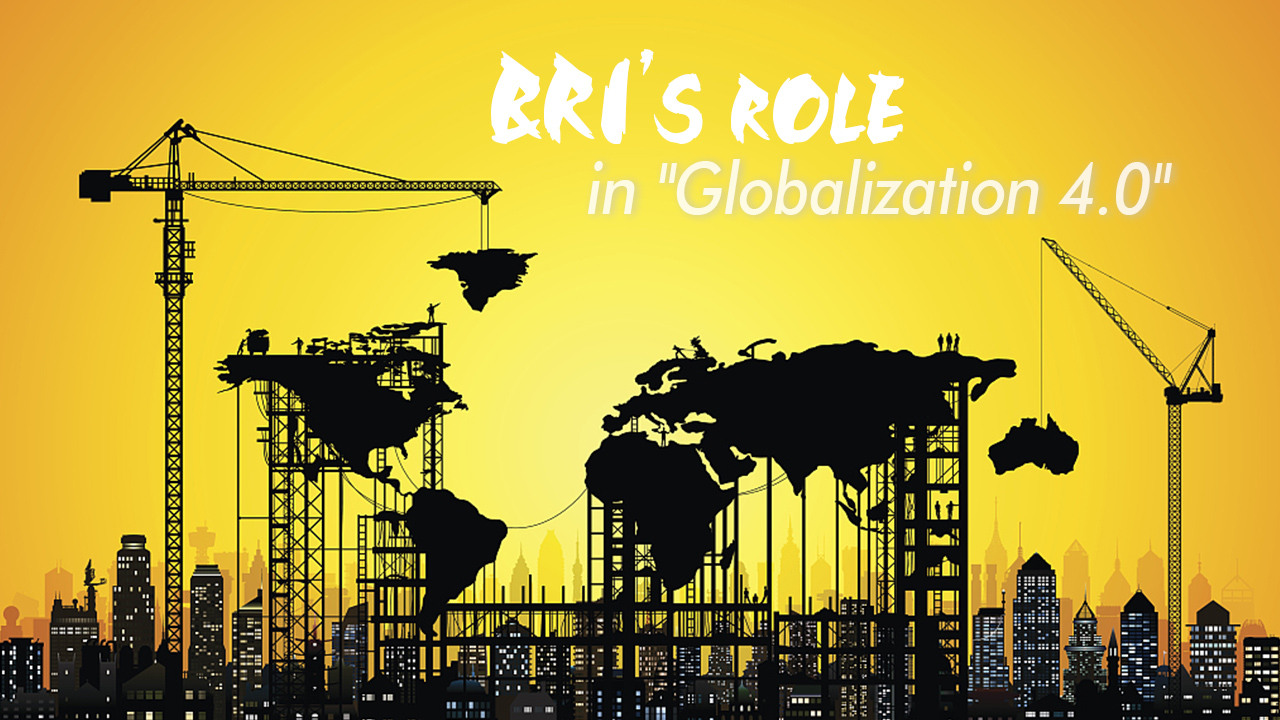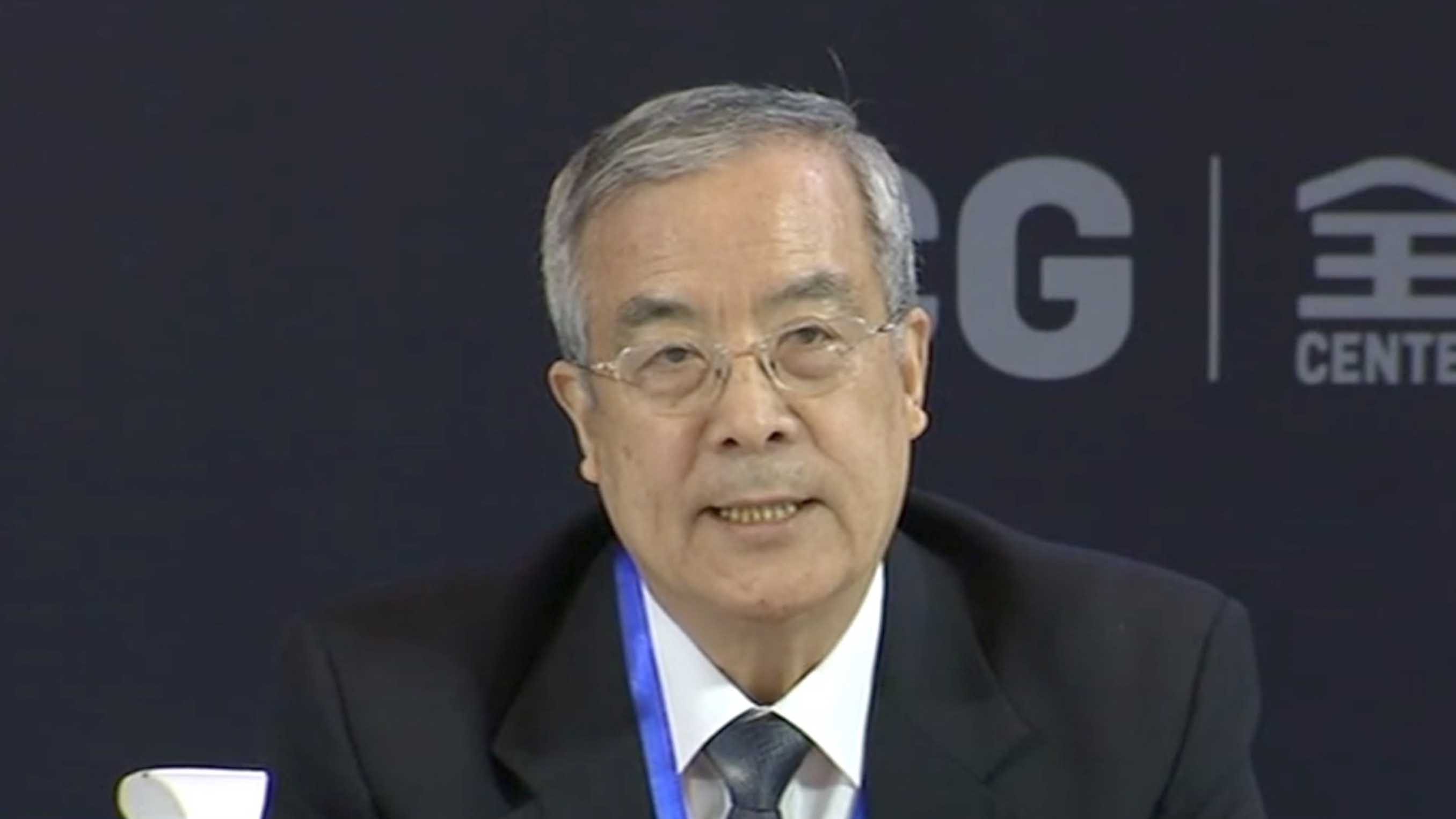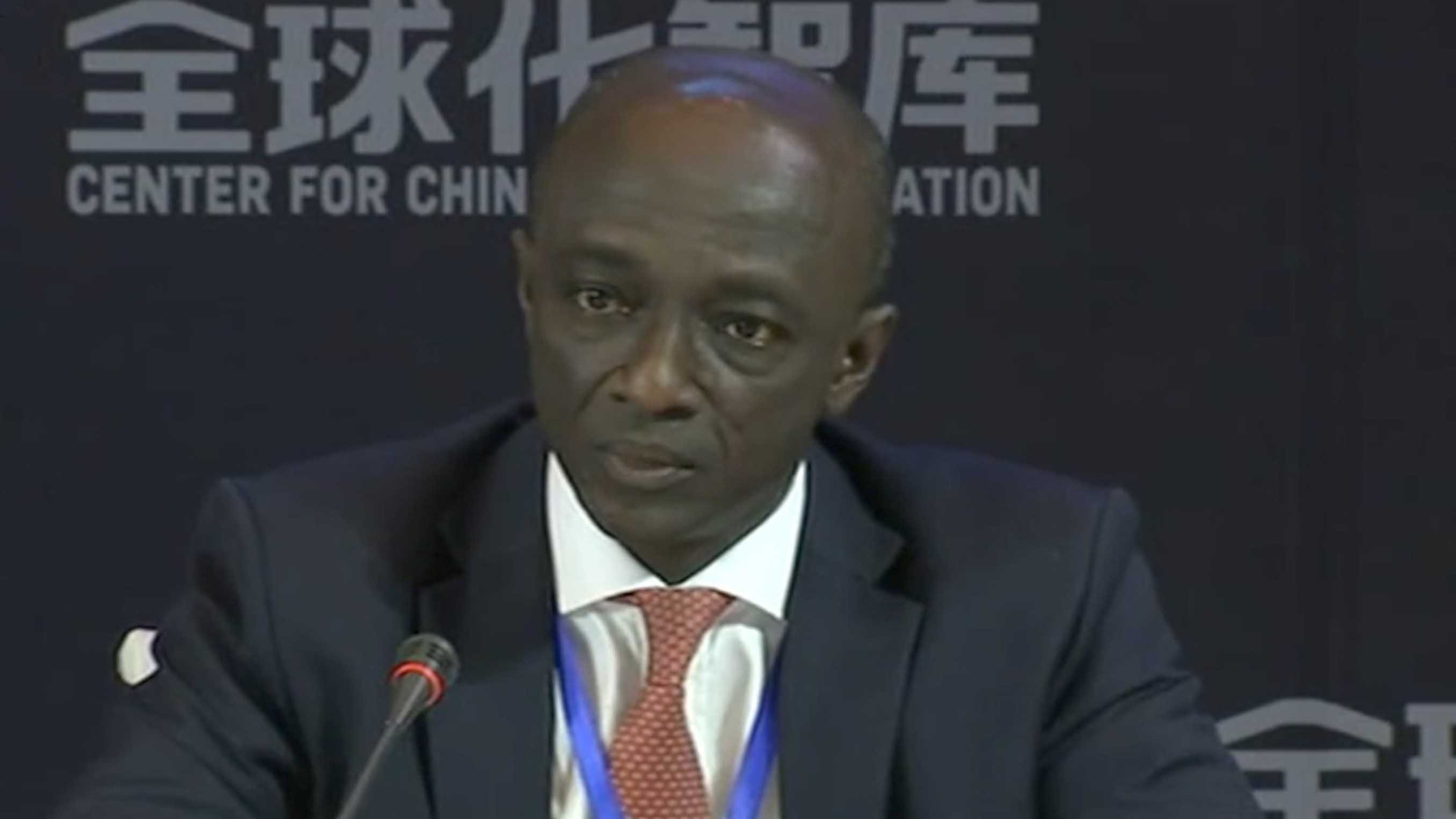
TV Show
07:56, 28-Apr-2019
What role can the BRI play in "Globalization 4.0"?
The Point with Liu Xin
00:30

The advent of the Fourth Industrial Revolution ushers in a new era of economic globalization, or what some refer to as "Globalization 4.0." The Belt and Road Initiative (BRI), which to date has received official support from 126 countries and 29 international organizations, shares the core nature of inclusivity and diversity with the concept of globalization. Against the backdrop of shifting international dynamics, how can the BRI contribute to strengthen multilateralism and international cooperation?
U.S. Secretary of State Mike Pompeo has said in March 2019 that the BRI is "a non-economic offer" and marks "predatory lending practices," and they are "working diligently to make sure everyone in the world understands that threat."
"BRI 360", a special series of The Point Program on CGTN, invited 10 ambassadors and senior diplomats to discuss this issue in depth. In this series, Terry Miller, former U.S. Ambassador to the UN and current Director of Center for International Trade and Economics of Heritage Foundation, said BRI represents an important opening by China and the desire of the Chinese government to engage more actively with countries around the world.
However, he also cast doubts on the BRI in terms of "transparency." "It is not always entirely clear what the goals of the Chinese government are when they engage in investment activities around the world," Miller said.
Italy signed the memorandum of understanding with China in March to take part in the Belt and Road Initiative, becoming the first Group of Seven member to join the BRI.
Giuseppe Fedele, Minister Counselor at Italian Embassy in Beijing, said the memorandum Italy signed with China includes important principles such as transparency, level playing fields, and economic, financial and environmental sustainability. "We believe the Belt and Road Initiative remains a connectivity initiative, including knowledge, not a grand geo-political vision," he said.
Fedele particularly emphasized that the memorandum states clearly what EU membership means in this cooperation. Germany, as an EU member itself, has not officially signed up to this project. If the common ground exists between China and Italy under the BRI framework, how far would it for China and Germany to find one?
China is one of Germany's most important trading partners. In 2018, the total trade volume between China and Germany reached 199.3 billion euros (225.7 billion U.S. Dollars), according to the German Federal Statistical Office.
"Germany and China have never been more closely intertwined than today," said Johannes Regenbrecht, Deputy Head of Mission of German Embassy in Beijing. According to him, there are now more than 5,000 German companies operating in China and more than 900 Chinese companies that are active in Germany.
"We welcome any initiative that can contribute to sustainable infrastructure development and the enhancement of regional connectivity," Regenbrecht said, "it is very important from our point of view that the Belt and Road Initiative is based on international standards and embedded in international frameworks, especially in the UN 2030 Agenda and the Paris Climate Agreement."
01:42

Su Ge, Chairman of China National Committee for Pacific Economic Cooperation and Former Chinese Ambassador to Iceland, commented that the reason the China-proposed initiative is receiving more international acceptance and support is that it is an open, equal, reciprocal process that embodies win-win cooperation.
Reacting to the concerns raised by the U.S. side, Su responded that, "If the U.S. has anxiety facing China's peaceful rise, the Belt the Road Initiative could be taken as a platform in which China and the U.S. can cooperate."
02:06

"Ghana signed up for the BRI in 2017 because we believe it provides new market opportunities," said Edward Boateng, Ambassador of Ghana to China.
Ghana and China have signed eight Co-operation Agreements and Memoranda of Understanding in different sectors in 2018. Ghanaian President Akufo-Addo noted that "Ghana has been a firm friend of China."
Given the fact that China has been Ghana' largest trading partner, the President also said that "Chinese co-operation and investment in our economy are extremely essential."
According to Boateng, the BRI is a window through which Ghana can engage in the world. "We don't see BRI is a zero-sum game. We should work together to make it better. If it is better, it is better for all of us and the rest of us. The Belt and Road Initiative is a new way of looking at the world and a new way of doing things."
Boateng also noted the people-to-people exchange between China and Ghana. There are currently 6,750 Ghanaian students in China. "10 years ago most students went to the West. Now more people are coming to Asia for education because the Asian value system does not force us to change our way of thinking and doing things," he said.
(If you want to contribute and have specific expertise, please contact us at opinions@cgtn.com.)

SITEMAP
Copyright © 2018 CGTN. Beijing ICP prepared NO.16065310-3
Copyright © 2018 CGTN. Beijing ICP prepared NO.16065310-3